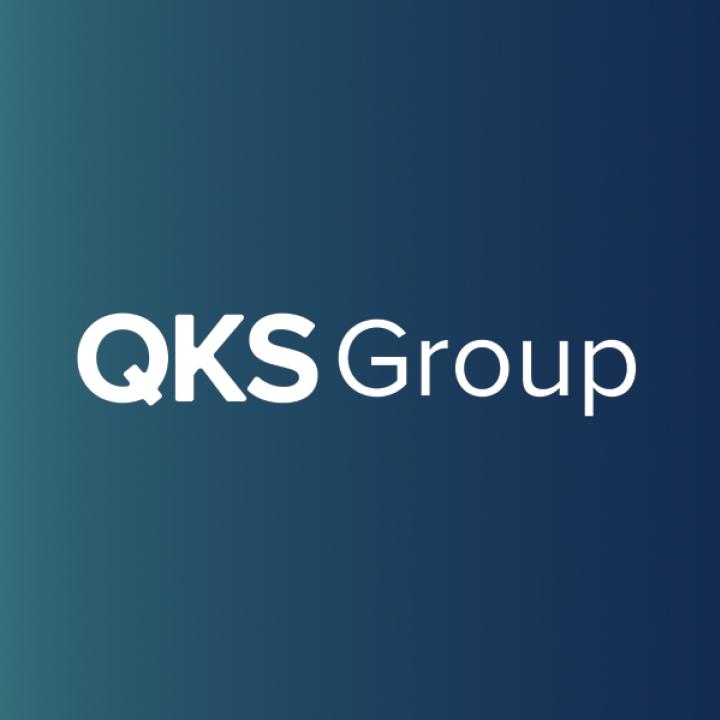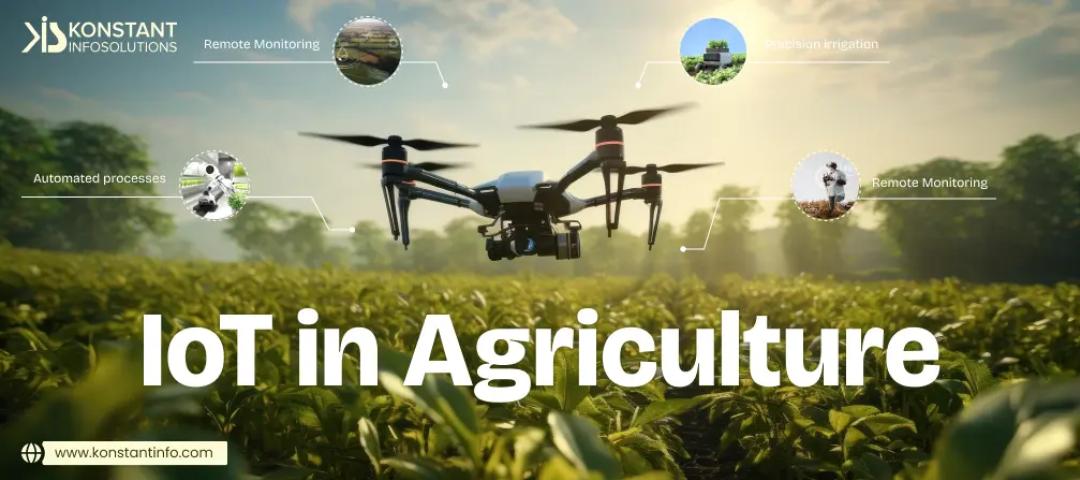The Internet of Things
(IoT) market has undergone significant growth, becoming a cornerstone of
technological transformation across industries. IoT refers to the
interconnection of physical devices, sensors, and systems that communicate over
the internet, enabling the collection, sharing, and analysis of data. The
proliferation of IoT devices is expected to grow exponentially, driven by
advancements in cloud computing, artificial intelligence (AI), and the need for
real-time data insights. It has found applications across diverse industries,
including manufacturing, healthcare, logistics, retail, and smart cities, with
edge computing increasingly complementing IoT deployments by addressing the
limitations of cloud-based architectures.
IoT Market Overview
IoT’s rapid expansion is fueled by multiple factors:
advancements in wireless communication technologies (5G), increased adoption of
cloud platforms, and the declining costs of sensors and hardware. The global
IoT market is segmented into several critical areas, each contributing to its
broad scope:
QKS focus on these below
Industrial IoT (IIoT): Arguably the most
transformative segment, IIoT enables smart manufacturing, asset tracking,
predictive maintenance, and industrial automation. Industries like oil &
gas, automotive, and aerospace are increasingly deploying IIoT solutions to
enhance operational efficiency and productivity through real-time data
analytics and machine-to-machine (M2M) communication.
Healthcare IoT: IoT’s impact on healthcare is
profound, enabling remote monitoring, telemedicine, and automated patient
management systems. Wearable devices and smart sensors help in real-time
tracking of vital signs, disease management, and patient care optimization, driving
the adoption of IoT in the medical field.
Smart Cities and Smart Buildings: IoT enables
efficient management of city resources, energy, and transportation. Sensors are
used in traffic management, waste disposal, public safety, and water
management, allowing municipalities to operate smarter, greener, and more
efficiently.
IoT in Logistics: In logistics, IoT is vital in fleet
management, asset tracking, supply chain visibility, and real-time monitoring
of goods and services. IoT-enabled devices like RFID and GPS trackers offer
significant visibility into transportation networks, reducing delays and
optimizing delivery schedules.
IoT Connectivity Management: Platform market is
undergoing significant transformation, driven by the increasing complexity of
IoT deployments and advancements in 5G, AI, and edge computing. CMPs play a
critical role in enabling enterprises to manage the growing number of connected
devices, optimize network performance, and ensure security across diverse
environments.
Edge Computing Market and IoT
Edge
computing is a distributed computing paradigm that brings data processing
closer to the source of data generation—"the edge"—to reduce latency,
bandwidth usage, and dependency on centralized cloud platforms. The IoT
ecosystem is closely tied to edge computing, as real-time data processing is
critical for latency-sensitive applications. As IoT devices proliferate, the
demand for edge computing is growing to handle the vast influx of data more
efficiently, especially in industrial and mission-critical environments.
Market Segmentation of Edge Computing
Edge devices such as gateways, micro data centers, and edge
servers are integral to the edge computing infrastructure. These components are
designed to handle data processing tasks locally, minimizing the amount of data
sent to centralized cloud environments.
Software platforms for edge computing facilitate data
analysis, machine learning, and decision-making at the edge. These platforms
are essential for industries that require immediate responses to data insights,
such as autonomous vehicles, robotics, and industrial automation.
Edge computing services include the development, deployment,
and management of edge infrastructure, providing end-users with the necessary
tools to maintain and scale their edge operations. Managed edge services are
critical in sectors such as retail and healthcare, where real-time processing
is paramount.
Integration of IoT and Edge Computing
The integration of IoT and edge computing is transforming
data processing capabilities by enabling localized computation, real-time
analytics, and enhanced security. For instance, in industrial IoT (IIoT)
applications, machinery equipped with sensors can process data on-site (at the
edge), ensuring critical decisions are made in milliseconds. This minimizes
downtime, reduces operational costs, and improves predictive maintenance
efforts.
Edge computing also addresses one of the key challenges in
IoT: bandwidth consumption. By processing data closer to the source, only
relevant and actionable insights are sent to the cloud, reducing the strain on
network infrastructure. Furthermore, edge computing significantly improves data
privacy and security, as sensitive data can be processed locally without
needing to traverse unsecured networks.
Future of IoT and Edge Computing
The evolution of IoT
and edge computing is poised to reshape industries, with AI and machine
learning (ML) further enhancing their potential. As edge devices become more
powerful and AI models become more sophisticated, IoT systems will gain
predictive and autonomous capabilities, enabling self-healing networks, dynamic
resource allocation, and improved decision-making.
The synergy between IoT and edge computing is anticipated to
drive the next wave of innovation, particularly in fields such as autonomous
systems, smart cities, and healthcare, where real-time data is crucial. With
the adoption of 5G and advances in quantum computing, the boundaries of IoT and
edge computing will continue to expand, making them integral to the future of
the digital economy.
QKS Group is a global research and consulting firm
specializing in the IoT and edge computing markets. Leveraging deep industry
expertise and cutting-edge insights, QKS Group delivers strategic analysis and
market intelligence that enable businesses to stay ahead in rapidly evolving
technological landscapes. Within the edge computing domain, QKS Group's
research focuses on critical areas such as edge analytics, Kubernetes for edge,
edge management orchestration (EMO), edge development platforms, and hyper-converged
infrastructure (HCI).
QKS Group's New Offerings: Leading the Way in IoT and
Edge Computing
QKS Group, with its rebranding and revitalized focus, is
rolling out new IoT and Edge Computing offerings that cater to the various
needs of its vendors. These offerings develop on four core pillars: Thought
leadership, Growth Intelligence & Strategy, Competitive Intelligence &
Strategy, and User Intelligence. QKS Group provides these offerings to help
organizations better understand their market position, growth potential, and
customer needs, thereby driving strategic decision-making and market success.
Thought Leadership: QKS Group’s strategic insights
empower companies to use the full potential of IoT and Edge Computing for
enhanced efficiency and innovation. With QKS TrendsNXT, you gain detailed
reports on IoT and Edge Computing trends and market dynamics, ensuring your
operations stay agile and competitive. QKS EMC Foresight enables you to
anticipate changes in IoT and Edge Computing by analyzing Evolution, Maturity,
and Convergence, ensuring your automation strategies remain forward-thinking.
The QKS TEM Impact report offers in-depth insights into the technology,
economic, and market trends shaping your industry, enabling you to make
smarter, data-driven decisions and keep pace in a rapidly growing business
environment.
Growth Intelligence & Strategy: We offer expert
insights into IoT and Edge Computing, tracking multiple software vendors across
14 industries and 10 regions. Our granular data helps companies in the IoT and
Edge Computing comprehend their total market potential, identify the most accessible
segments, and make informed decisions for growth. With QKS TAMSAM Insights, we
provide a clear view of the Total Addressable Market (TAM) and Serviceable
Addressable Market (SAM), enabling you to prioritize automation innovations,
refine process strategies, and design highly targeted campaigns that align with
IoT and Edge Computing trends.
Competitive Intelligence & Strategy: Gain a
competitive edge in IoT and Edge Computing with our in-depth analysis of the
ICT markets and benchmarking of multiple software vendors. Our MarketIQ and
SPARK Matrix reports provide a clear visual into your performance, offering
valuable insights into market share, growth strategies, and competitive
positioning. These tools help you refine your IoT and Edge Computing processes,
streamline operations, and optimize corporate strategies while recognizing key
differentiators to stay ahead in the rapidly growing IoT and Edge Computing
market.
User Intelligence: In a customer-centric world, the
meaning of user intelligence is essential to success. QKS Group’s user
intelligence insights help organizations grab and analyze customer feedback,
preferences, and expectations. This data is invaluable for shaping product
development, marketing strategies, and overall business operations. By aligning
their offerings with the needs and expectations of their customers, companies
can enhance satisfaction, improve customer loyalty, and drive growth. QKS
Group’s user intelligence provides a competitive edge by helping companies stay
aligned with market needs and rapidly adapt to varying customer behaviors.
Conclusion
The rapid expansion of the IoT market, driven by
advancements in cloud computing, AI, and edge computing, is transforming
industries worldwide. As the number of connected devices continues to grow,
IoT's integration with edge computing is crucial for real-time data processing,
reduced latency, and enhanced security. From manufacturing to healthcare and
smart cities, IoT applications are reshaping operational models, driving
innovation, and enhancing efficiencies. With the continued development of 5G,
AI, and future technologies, the potential of IoT and edge computing is bound
to scale further, establishing them as pillars of the modern digital economy.
QKS Group is at the forefront of this changes, offering strategic insights and
solutions to help organizations navigate and lead in this landscape.














